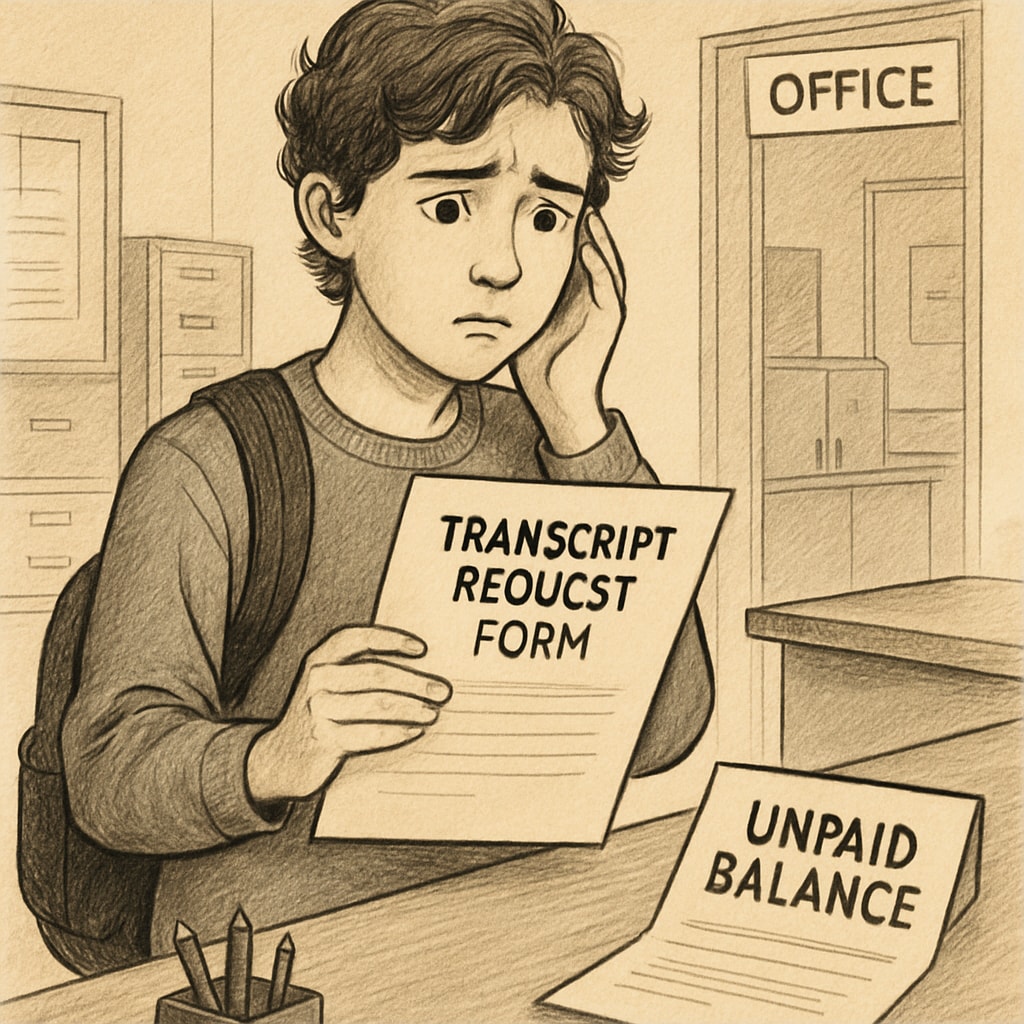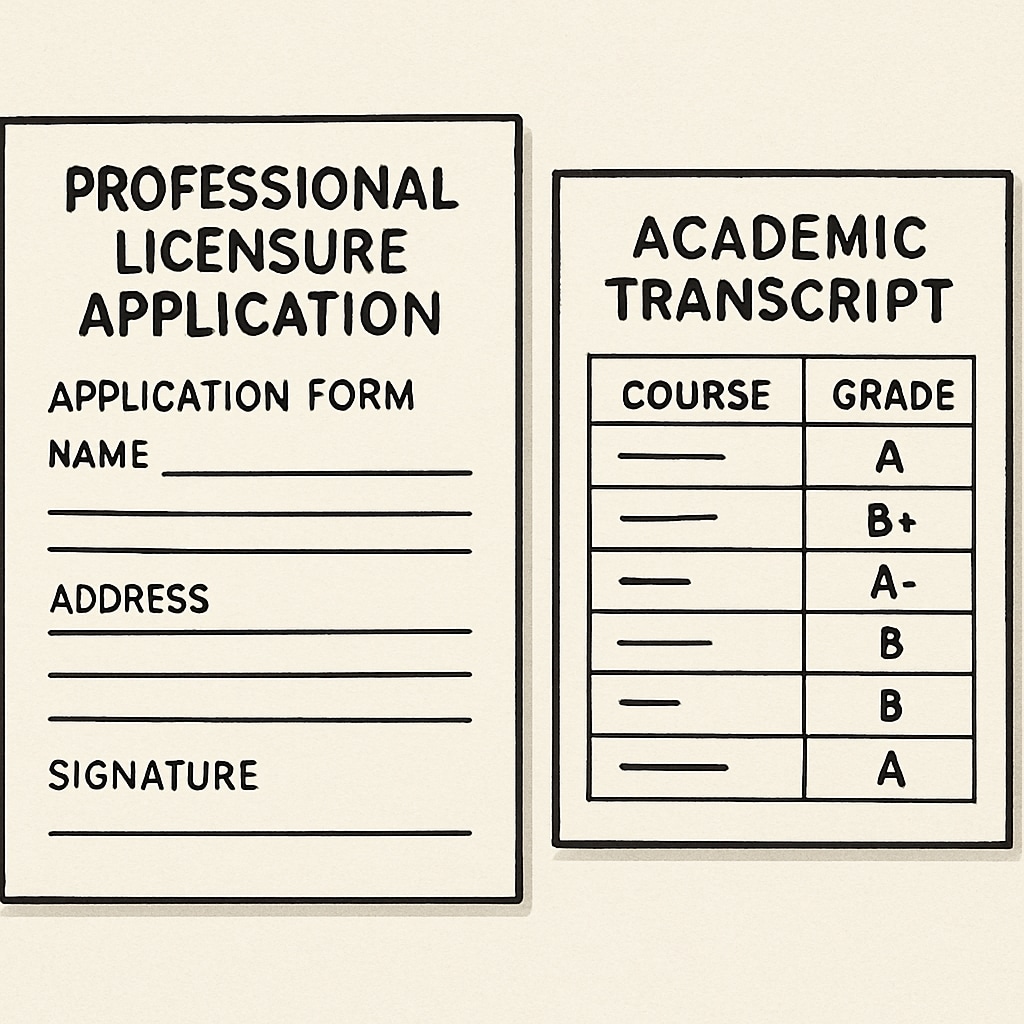For parents navigating the K-12 education system, unpaid balances can sometimes lead to challenging situations, particularly when trying to access school transcripts. These documents are often essential for milestones like transferring schools or sitting for professional licensure exams. However, many institutions enforce strict policies, withholding transcripts until outstanding fees are cleared. This article explores practical solutions for obtaining transcripts while respecting school policies and supporting your child’s educational progress.
Understanding the Impact of Unpaid Fees on Transcript Access
Schools often implement policies to ensure tuition and other fees are paid on time. When balances remain unpaid, institutions may withhold access to critical documents, including transcripts. This practice, though common, can create significant barriers for families already facing financial struggles. For example, a parent may need their child’s academic records to meet application deadlines for advanced placement programs or licensure exams.
According to a Britannica article on education policies, withholding transcripts is largely a financial compliance measure rather than an academic one. However, it can disproportionately impact low-income families, making it harder for students to advance academically or professionally.

Exploring Options When Transcripts Are Withheld
If your child’s transcripts are being withheld due to unpaid fees, there are several avenues you might consider:
- Open Communication: Contact the school administration to explain your financial situation. Many schools have hardship policies or payment plans that could allow partial access to records.
- Seek a Waiver: In some cases, schools may offer fee waivers for families facing documented financial difficulties. This can be a viable solution for accessing transcripts temporarily.
- Leverage State Laws: Some states have laws that prevent schools from withholding transcripts for unpaid fees, especially for public institutions. Check your local regulations to understand your rights.
- Use Alternative Records: If the transcript is not immediately available, request other records like progress reports or teacher recommendations to fulfill interim requirements.
These steps not only provide immediate solutions but also demonstrate your proactive efforts to resolve the situation responsibly.
When Transcripts Are Needed for Professional Licensure Exams
For families needing transcripts for professional exams, the stakes are even higher. Missing deadlines can delay opportunities for months or even years. In such cases, the following strategies can be particularly effective:
- Negotiate Conditional Release: Request that the school release the transcript directly to the licensing body, rather than to the family, as this may reassure the school of your intentions to resolve the debt.
- Offer a Partial Payment: Propose a partial payment as goodwill to show your commitment to clearing the balance. This can sometimes prompt schools to release necessary documents temporarily.
- Utilize Third-Party Assistance: Reach out to local charities, community organizations, or even professional associations relevant to the licensure exam for financial support.
For additional context, the Wikipedia page on professional certification highlights how academic records are often non-negotiable for qualification purposes, making it essential to address transcript access proactively.

Balancing School Policies with Educational Needs
While it’s crucial to respect school policies, parents and guardians also have a responsibility to safeguard their child’s educational and professional future. Here are some tips to maintain this balance:
- Stay Informed: Familiarize yourself with the school’s fee policies and deadlines to avoid surprises.
- Budget for Education Costs: Set aside funds for school-related expenses whenever possible, and seek financial planning resources if needed.
- Advocate for Policy Changes: Join parent-teacher associations or local advocacy groups to push for more equitable policies that consider financial hardships.
Ultimately, collaboration and communication with the school can go a long way in finding mutually beneficial solutions.
Conclusion: Ensuring Access to Essential Academic Records
Unpaid balances should not permanently hinder a child’s educational or professional aspirations. By exploring flexible solutions, communicating effectively, and leveraging community resources, parents can often navigate these challenges successfully. While schools have their own financial obligations, they also play a pivotal role in supporting students’ futures—an aim that benefits everyone involved.
Addressing these issues thoughtfully ensures that families can overcome financial obstacles without compromising on their educational goals.
Readability guidance: This article uses short paragraphs, clear lists, and practical advice to ensure accessibility. Transitions like “however,” “in addition,” and “for example” are evenly distributed, and active voice is prioritized for clarity.


